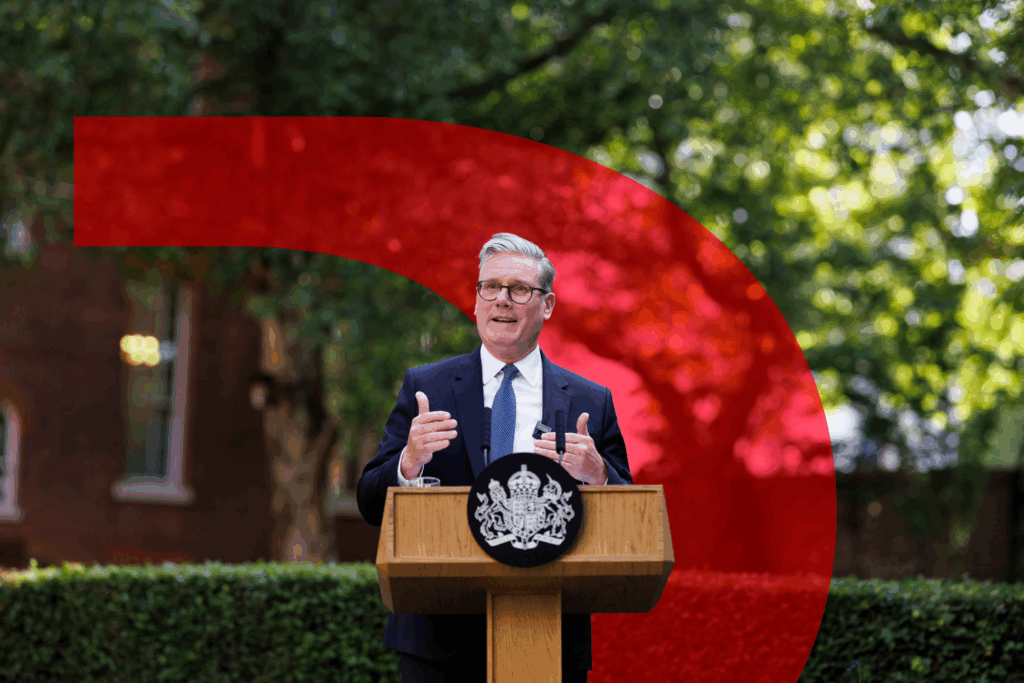On Friday June 24th, in Manchester Town Hall, Jenny Watson, the chief counting officer, will announce the decision of the British people — whether we leave or remain in the European Union.
It will be a tense moment and if we vote to leave, as I dearly hope we will, there will be exhilaration and relief on our side. But after the initial flurry of emotions, everything will settle down. I suspect all those who have been stoking up Project Fear will be surprised by the calm and stability that prevails and the sense of optimism about our country which begins to take hold.
The day after we vote to leave, no laws will have changed, no iron shutters will have clanked down at the portal of the Channel Tunnel. The British people will simply have given their instruction to the Government to make arrangements for us to leave the EU. It will be the start of a process. It will be in Britain’s hands how we manage it and how long it takes.
The Government will meet to decide the next steps. Officials and diplomats will immediately start scoping out the broad parameters for full-scale talks with our European friends and with the institutions in Brussels. The mission will be clear: securing the best possible terms for Britain.
Jean-Claude Juncker, the president of the European Commission, recently told a French newspaper that if we leave we will be treated as “deserters” and taunted like cats having their fur stroked the wrong way. But once we vote to leave, the fury and bluster of the campaign will be ancient history.
It has often been said that the EU takes advantage of every crisis to pursue deeper integration by creating new facts on the ground. On this occasion, it will be Britain creating the new facts. Juncker, Brussels and Europe will knuckle down to deal with this reality– that a member state is departing for the first time and that it is in the interests of everyone to get it done well.
Article 50 of the Lisbon Treaty lays out a formal process for leaving the European Union. Once it is invoked, a two-year process starts which can be extended to three years if all the member states agree. But Article 50 is just one means of leaving the EU. And even if the Government decided to take that route, there is no obligation to invoke it immediately after a vote to leave. We are in control of the process. We can proceed at our own pace and in our own time. No responsible Government would start that two-year process before making full preparations, including extensive parliamentary discussion.
In 1973, people thought Britain was signing up not for a bureaucracy to swallow up their sovereignty, but for a Common Market –
those two words appeared on the ballot paper in 1975, when we last had a vote on Europe. So it makes sense that we will keep our free trade arrangements with that market.
Would we opt for a Norwegian model, a Swiss model or a Canadian model in our future relationship? The fact that so many countries have been named exposes the flaw in the question.
Every country has its own model – and so would Britain.
Free trade in Europe does not just depend on the EU. Companies do business with each other freely from Iceland to Turkey. Every European country except Belarus is part of that zone. It is absurd to suggest that the EU would seek to put up trade barriers with Britain in a fit of pique because, following a democratic decision, we are exercising our sovereign right to leave, as enshrined in the European treaties.
The EU is legally bound to pursue friendly, neighbourly relations with every country around its borders and it would be in the interests of German car workers, Italian fashion houses and French farmers — to name just three powerful interest groups — that free trade and friendly cooperation were further enhanced.
In hard-headed terms, it is clearly in the interests of our European friends to continue to trade freely with us, given that they sell us nearly £70bn a year more in goods and services than they buy from us. You do not close the shop to your best customer.
Do we really think that Germany will allow barriers to go up to the sale of washing machines in Britain?
While we negotiate in Europe, we will also be talking to our friends worldwide. Britain carried the banner of free trade, with all the progress and prosperity it brings with it, around the globe. Then we surrendered the right even to negotiate about it. By leaving, we will regain our seat on the World Trade Organization. And where we have existing free trade deals through the EU, we can simply continue current arrangements. Countries like South Korea would not wish to see tariffs re-imposed on its exports of electrical goods and cars to Britain.
We would also have the opportunity to pursue new agreements, putting rocket boosters under our trade with old friends and emerging powers. The EU, struggling to cobble together a common position among 28 very different countries, has failed to reach deals with any of the world’s biggest economies — like China, Japan, and the United States.
Australia, an economy half our size, has agreements with all three and is close to signing one with India. We will have that chance once we are free of the unnecessary layer of Brussels middle managers whose efforts constantly fall foul of what Professor John Gillingham has called “protectionist witch-hunters” in too many European countries.
During the negotiation period, we will discuss not only trade but other vital aspects of the relationship such as controlling the movement of people. The current chaotic free-for-all is unsustainable, with unchecked migration from Europe leading to numbers equivalent to a city the size of Newcastle moving to Britain every year.
The new migration system we will design will be fair to people wherever in the world they come from, so we can admit them based on whether they have the skills Britain needs or are genuinely fleeing persecution. We will no longer have to discriminate so unfairly against non-Europeans which we do now.
Introducing a fair, well organised migration system will ease pressure on our public services and improve our national security, which will be free from the dangerous meddling of the European Court of Justice in Luxembourg.
Ultimately, once we have reached a deal on a new EU-UK relationship, we will repeal the 1972 European Communities Act. But we can immediately amend the Act to make some urgent changes before leaving the EU. Specifically, we can pass emergency measures to curb the baleful influence of the ECJ, which has become a rogue court that threatens our safety. As Justice Secretary, I have experienced the frustration at our inability to refuse entry to those with a criminal record and even some who are suspected of terrorist links.
The period of negotiation with the outside world will also be a period of preparation at home. European laws are part of British law and will continue in force until we revise them. Once we have decided which ones need changing most urgently, we can prepare replacements to take effect as soon as we leave. For example, we need to free our businesses from the most damaging of the Brussels regulations that cost them £600m a week.
But there will certainly be no bonfire of employment rights, as some scaremongers in places like the TUC have suggested.
Britain introduced equal pay for men and women thanks to the campaigning of sewing machinists at Ford in Dagenham, not bureaucrats in Brussels.
And it was this Government, not the EU, that introduced the National Living Wage.
We will have the chance to draw up our own agricultural policy for the first time in more than four decades. There would be no reason for farmers to lose any of the grants they currently receive once we regain control of the £20bn gross and £10bn net we send to Europe every year.
Scientists, like farmers, will find life far easier and less bureaucratic. We will be able to maintain the funding they receive, but do it better.
As Sir Andre Geim, the Nobel prize-winning physicist, has said: “I can over no nice words for the EU framework programmes which…can be praised only by europhobes for discrediting the whole idea of an effectively working Europe.” Far better to have science grants managed by the British funding system, described by Geim as “the best, most fair and least bureaucratic…I have ever experienced.”
Overall, the changes we see will be a process of gradual divergence, not sudden turbulence.
It is in the interests of the Remain campaign to pump up the fear levels, claiming there would be some abrupt, cataclysmic breach. It was nevertheless Lord Rose, the former head of Marks & Spencer and one of the Remain leaders, who put it with more accuracy: “It’s not going to be a step change, it’s going to be a gentle process…Nothing is going to happen in the first five years probably. Then, if you look back ten years later, there will have been some change.”
And ultimately, leaving will bring greater stability and security. The change we will experience by leaving the EU will be easier to handle than the change if we stay in. The eurozone will integrate ever more closely, with the Brussels institutions gradually morphing into organs of the single currency. Unfortunately in our renegotiation with the EU, we promised to give up our veto on further integration. Our influence will wither and we will constantly be trying to fend of damaging encroachments on our laws with less and less power to do so.
We now have the chance to save ourselves from all that pointless friction.
Leaving will be about change the British way, evolution not revolution. But that change will make us a freer, fairer and better-off country.
By Michael Gove






